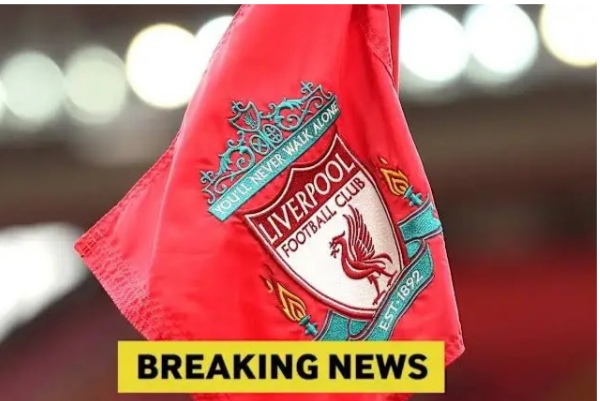“Arne Slot’s Tactical Meltdown: Liverpool’s Crisis Deepens as Repeated Errors Push Team to Breaking Point”
Liverpool’s season has descended into growing uncertainty as head coach Arne Slot continues to fall into the same damaging tactical trap. What began as occasional missteps has now snowballed into a recurring pattern that is costing the team valuable points and, more importantly, its identity on the pitch. Slot’s recent decisions, especially during matches where Liverpool concedes first, have sparked intense debate among fans and analysts. Many believe the manager’s approach has become predictable, reactionary, and increasingly chaotic. With the club already struggling to find stability, these repeated mistakes are pushing Liverpool closer to a full-blown crisis.
Throughout the Premier League campaign so far, Liverpool has displayed a troubling inconsistency. The team has won six matches but also lost six—an alarming statistic for a squad that was crowned champions only 13 league games ago. A strange trend has emerged: whenever Liverpool scores first, confidence and composure follow. But the moment the Reds fall behind, the team appears mentally defeated. Not once this season have they managed to recover points after conceding the opening goal, raising serious questions about leadership, mentality, and in-game management.
Slot’s go-to solution when Liverpool is chasing the game has been to overload the attack by throwing on as many forward-thinking players as possible. On the surface, it sounds bold and aggressive. In reality, it has repeatedly resulted in Liverpool losing all structure, balance, and clarity. The more attackers he adds, the more disjointed the team becomes. Players are pushed into uncomfortable positions, defensive shape collapses, and the midfield—often reduced to a single man—gets overrun. Instead of sparking a comeback, the tactic creates chaos and panic, making Liverpool easier to punish.
The defeat to Nottingham Forest was the clearest example of Slot’s miscalculation. By the end of the match, half of Liverpool’s defensive line consisted of midfielders playing out of position, while five attackers were crammed into forward areas with no real coordination. This all-or-nothing approach left Alexis Mac Allister isolated as the lone midfielder, struggling to connect the lines or protect the team from counters. Slot defended his choices by arguing that the team needed goals, but the lack of control made Liverpool vulnerable and disorganized. The result was a messy, frantic ending that only widened the gap between Liverpool and their opponents.
Slot admitted in his post-match interview that he reshuffled into a 3-3-4 formation because he felt the earlier substitutions were not generating enough chances. He highlighted a past occasion where a similar gamble paid off away at Forest last season. But what was once seen as brave now feels closer to desperation. The repeated failure of this approach makes it clear that hoping for chaos to produce a miracle goal is not a sustainable method. The players look unsure, the structure collapses instantly, and Liverpool often ends games in near-total confusion.
Beyond tactics, there are growing concerns about Liverpool’s mentality under pressure. For a team that recently lifted the Premier League trophy, their inability to respond positively to adversity is alarming. Confidence evaporates quickly, passes become rushed, and decision-making declines under the slightest stress. Slot himself appears to lose composure on the touchline, abandoning the game plan in favor of frantic, improvised reshuffles. A club with Liverpool’s stature cannot rely on panic tactics; both players and manager must rediscover discipline and a sense of control.
Ultimately, Slot’s biggest mistake is not just the substitutions—it’s the abandonment of structure, identity, and patience. Liverpool has the talent to respond intelligently and creatively when chasing a goal, but those strengths disappear the moment order is replaced with desperation. If the team is to avoid spiraling completely out of control, Slot must rethink his strategy, trust the system, and rebuild the composure that once defined Liverpool’s character. Without immediate changes, the Reds risk plunging deeper into chaos with each match they fall behind.







